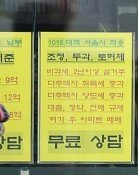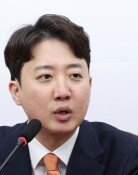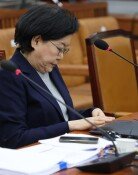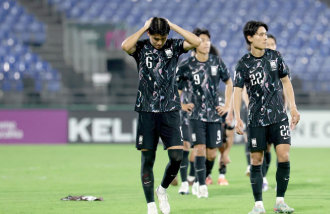PPP faces unprecedented infighting over candidate unification
PPP faces unprecedented infighting over candidate unification
Posted May. 09, 2025 07:19,
Updated May. 09, 2025 07:19
A second round of talks between People Power Party (PPP) candidate Kim Moon-soo and former Prime Minister Han Duck-soo ended in failure Thursday, as the two camps failed to agree on the timing and method of unifying their presidential bids. Kim escalated the standoff by filing an injunction against his own party leadership, calling their plan to finalize unification by Sunday a “fraud against the public” and rejecting the idea of transferring the party’s nomination to a third party. He instead proposed holding a televised debate on May 14 and a joint poll on May 15-16.
PPP leaders, however, dismissed Kim’s demands, accusing him of clinging to his candidacy. They pressed ahead with their own plan, launching a two-day poll Thursday to gauge public preference between the two candidates — an unprecedented move that sidelines the party's own nominee and risks legal challenges.
The verbal exchanges among Kim, Han and PPP leadership have reached self-destructive levels. During Thursday's meeting, Kim accused Han of demanding he surrender his candidacy, while Han countered that Kim was refusing to unify in good faith. Earlier, Kim dismissed the process as "chasing ghosts," prompting party leaders and Han to label his remarks "pathetic and disgraceful" and "fundamentally disrespectful."
What started as a unification effort now threatens to spiral into a full-blown party crisis. Kim, asserting his authority as the official candidate, seeks to delay unification, while party leaders have convened emergency meetings to potentially nominate a new candidate through a national convention. If Han emerges ahead in the polls, the leadership is expected to move to replace Kim — a scenario likely to trigger court battles and leave the party without an official nominee when registration closes in three days.
Observers say the debacle is unprecedented in South Korean political history, with responsibility shared among Kim, Han and the PPP leadership. The leadership has been accused of orchestrating Kim's removal in a way reminiscent of past internal purges. Kim, meanwhile, is criticized for stalling after campaigning on a promise of swift unification. Han, who is not a party member, has added to the confusion by saying he would leave the unification method to the party, further muddying the waters.
All three sides appear more focused on political self-interest than the presidential race itself, analysts say. With stakes including control over party nominations and leadership, the battle has descended into what some call a "tragedy of second place" or a thinly veiled effort to oust the party's own nominee. While losing an election can be honorable, critics warn that the PPP's internal war risks leaving lasting damage. The real challenge, they say, is not who becomes the unified candidate but whether the party can rebuild itself as a credible conservative force. For now, the PPP looks less like a political machine and more like a sleepwalker headed for a cliff.







